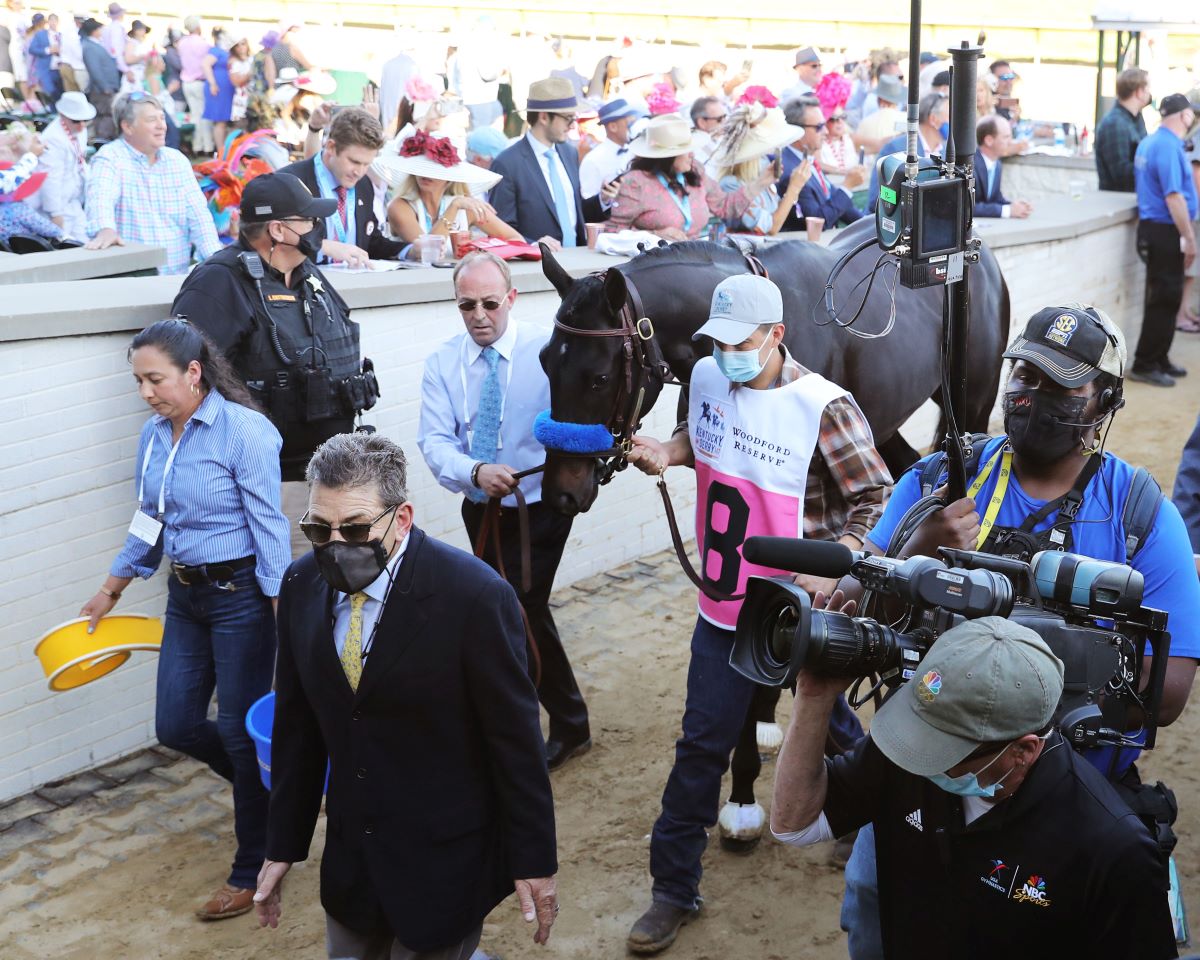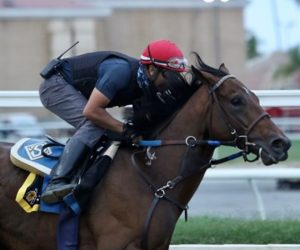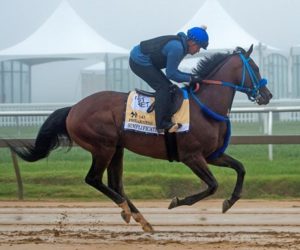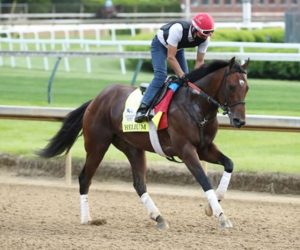Kentucky Judge Thomas Wingate granted permission on Wednesday for a urine sample of Kentucky Derby champion Medina Spirit to undergo extra testing at a New York lab.

Blood-Horse first reported that Wingate, a Circuit Court Judge from Franklin, Kentucky, specified the details for the sample’s transfer from the Kentucky Horse Racing Commission to an Ithaca, New York lab. Blood-Horse reported that the sample is headed to the New York Drug Testing and Research Program.
Wingate issued a temporary injunction spelling out the travel plans, which state that two KHRC representatives travel with the sample, which must be at the lab by June 21. Bob Baffert, Medina Spirit’s trainer, and Amr Zedan, who owns the Derby winner, will pick up the tab for the testing and the transport.
That pair and their legal team brought the suit last week seeking further testing on Medina Spirit after the colt tested positive for excessive amounts of the anti-inflammatory betamethasone. Under KHRC regulations, the medication is not illegal, but it must be out of a horse’s system on race day.
Baffert maintains Medina Spirit did not gain an edge
On May 9, Baffert announced that Medina Spirit tested positive for 21 picograms of the medication. He later said the betamethasone came from a topical ointment, Otomax, applied after the colt’s second-place finish in the April 3 Santa Anita Derby. Baffert said the ointment was applied to treat a skin rash.
A picogram is one trillionth of a gram.
That’s the crux of Baffert’s and Zedan’s suit. They maintain that because the betamethasone positive came about via an ointment and not via injection, Medina Spirit didn’t gain a performance edge. No decision has been made yet on Medina Spirit’s Derby victory, which rests in the laps of the KHRC and its stewards.
Through this unusual move, the connections want the KHRC to decide that mitigating circumstances and not intentional PED usage created the positive tests. That could result in lesser penalties than disqualification and trainer suspension.
The reason for the suit: What else is in Otomax?
Baffert and Zedan sued to get another urine sample, one controlled by the KHRC, which will be tested for three ingredients found in Otomax, including clotrimazole, gentamicin, and betamethasone valerate.
Baffert and Zedan requested that the lab receive “free rein to run all testing that is necessary to determine the source of betamethasone in Medina Spirit.†Wingate allowed testing for those three ingredients.
Late last week, Wingate urged the principals to come to a mutual agreement regarding Medina Spirit’s urine sample. When they couldn’t, for various reasons, Wingate stepped in.
In his ruling, Wingate recognized the chain-of-custody issues Baffert and Zedan illustrated in their suit. They claimed the original split sample, which confirmed the original positive, was damaged in transit to the California lab. He allowed the KHRC to keep five milliliters of Medina Spirit’s urine. The rest, approximately 20 to 25 milliliters, may be tested.











